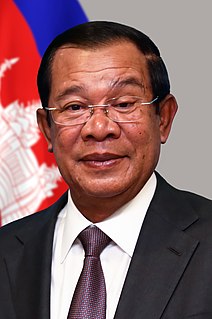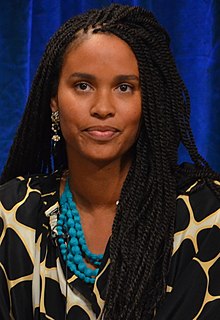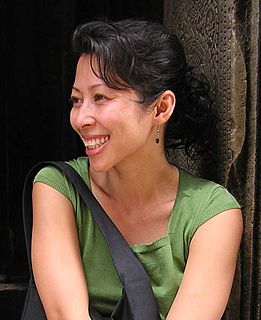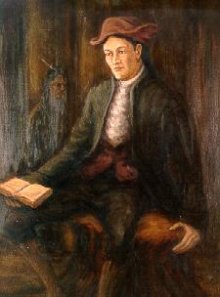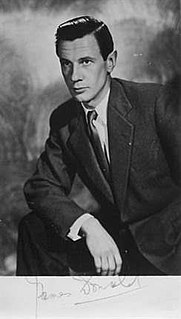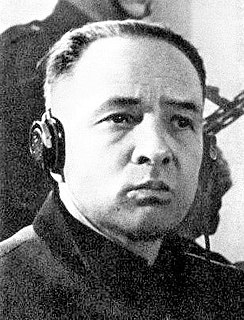A Quote by Michael Paterniti
Operating from 1975 to 1979, S-21 became the most infamous of 196 such prison camps the Khmer Rouge established throughout Cambodia, primarily because so many of its prisoners were the purged party loyal - and because Duch's methods were so stunningly brutal.
Related Quotes
What inspired me most was the resilience of the Cambodian people. The country is still living with the trauma of the brutal Khmer Rouge regime. People lost everything - family, friends. The rich culture of Cambodia was nearly extinguished. They are a nation of survivors. And while poverty and infant mortality affect a disproportionate amount of the people there, those I met were hopeful for the future and doing the best they can with
what they had.
We know that there were so many Japanese American soldiers in World War II who were fighting in Europe despite the fact that their families, their parents were back home in American prison camps. It's savagely ironic that between themselves and the African-American soldiers, who were also segregated and didn't see the fruition of the work the culminated in the Civil Rights Act until the '60s, that these American heroes and their stories are not well known; and the fact that the 442nd/100th became the most decorated unit in U.S. history.
With Pussy Riot - this was a prank! It was a brilliant, artistically gifted prank. But they didn't expect to go to prison! They were college girls who became political prisoners for two years. That makes them very similar to the people who were "just going to a protest one day" and got arrested. They had no idea they were risking the rest of their lives. Because you're never the same after you've spent two years in a gulag.
Generally speaking, our prisoners were capable of loving animals, and if they had been allowed they would have delighted to rear large numbers of domestic animals and birds in the prison. And I wonder what other activity could better have softened and refined their harsh and brutal natures than this. But it was not allowed. Neither the regulations nor the nature of the prison made it possible.
Anti-Semitism is best understood as a virus. It has no logic. Jews were hated because they were rich and because they were poor; because they were capitalists and because they were communists; because they held tenaciously to an ancient faith and because they were rootless cosmopolitans, believing nothing. Hate needs no logic. It is a sickness of the soul.
This so-called ill treatment and torture in detention centers, stories of which were spread everywhere among the people, and later by the prisoners who were freed, were not, as some assumed, inflicted methodically, but were excesses committed by individual prison guards, their deputies, and men who laid violent hands on the detainees.
... as recently as the mid-1970s, the most well-respected criminologists were predicting that the prison system would soon fade away. Prison did not deter crime significantly, many experts concluded. Those who had meaningful economic and social opportunities were unlikely to commit crimes regardless of the penalty, while those who went to prison were far more likely to commit crimes again in the future.

